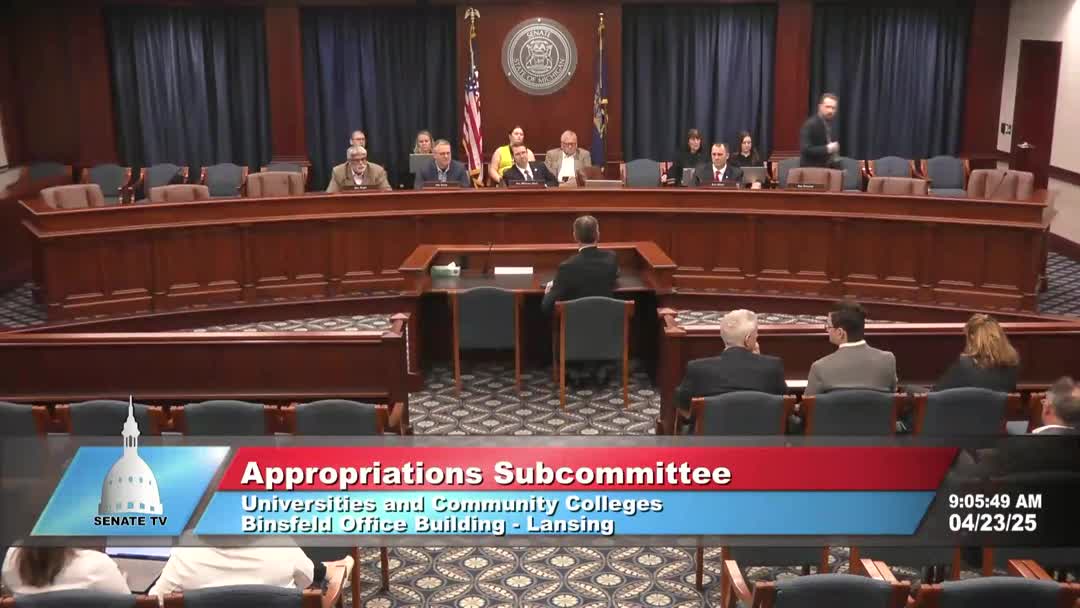Michigan public universities ask for 4.8% operating increase and $100 million for deferred maintenance in FY26
Get AI-powered insights, summaries, and transcripts
Subscribe
Summary
Dan Hurley of the Michigan Association of State Universities urged the Senate Appropriations Subcommittee to increase operating support for public universities by 4.8%, expand the Michigan Achievement Scholarship, and provide $100 million toward campus deferred maintenance as part of the FY26 budget.
Dan Hurley, CEO of the Michigan Association of State Universities, told the Senate Appropriations Subcommittee on Universities and Community Colleges that Michigan’s public universities need increased operating support, continued expansion of the Michigan Achievement Scholarship and new funding for deferred campus maintenance as lawmakers prepare the FY26 budget.
Hurley told the panel the sector now enrolls roughly 260,000 students and that after a decade-long decline enrollment has shown modest increases in the past two years. He said research conducted at the state’s major research universities generates significant economic activity — citing about $3.3 billion in R&D at the three then-URC institutions and more than $25 billion in annual economic impact statewide — and pointed to studies showing a strong correlation between educational attainment and income.
"We are asking for an increase in operating support of 4.8%," Hurley said, noting the governor's executive recommendation of 4%. He also asked the subcommittee to "continue the build out" of the Michigan Achievement Scholarship and to restore campus deferred maintenance funding, asking specifically for $100 million to address roughly $6.44 billion in identified campus maintenance needs. "We're asking for a hundred million dollars, but frankly, any dollar amount is a recognition by this body that the state has a role in preserving what are very important state assets," Hurley said.
Hurley provided additional figures from materials in members’ folders: he said 34,500 recent entering students have received the Achievement Scholarship, with an average award of about $5,200, and he estimated roughly $180 million going to public university students through that award. Hurley also told senators the sector produced several tens of thousands of credentials annually and that the return on investment to individuals with a four‑year degree was large: citing a multi‑decade ROI study showing an average individual lifetime gain on the order of millions of dollars for graduates of Michigan public universities.
During questions, a subcommittee member asked what the sector could do in the face of federal research funding uncertainty and whether the state should backfill federal cuts. Hurley said university leaders are coordinating nationally and using reserves in some cases to keep research projects moving, but recommended focusing state attention on operating support rather than attempting to replace federal research dollars. "Given everything else being threatened at the federal government, I would be a little hesitant on using state dollars to fill in, right now in any significant fashion, but rather focus again on operating support," he said.
The presentation consisted of stakeholder testimony and discussion; no formal action or vote on the requests occurred at the hearing. Members said they would consider the requests as the FY26 budget process proceeds.
